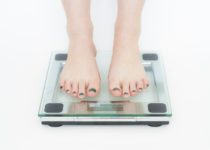Sleep Problems
When someone has sleep problems, it can be a really tough thing to figure out. BH has had sleep problems for over 30 years. Nothing has reliably worked to get him a good night’s sleep most of the time. This is almost certainly due to there being many causes of sleep issues and some are in effect sometimes and some others.
Fixing sleep problems is not a one time thing. Each time it can be something new, something different. What worked fine one time does not work another. So anytime you have sleep issues, you may find you have to start over figuring out why.
Problems falling asleep and problems staying asleep usually have completely different causes. In either case, you need to consider physical issues, emotional issues, and nutritional issues. Anything that messes up your melatonin cycle will negatively affect sleep. Anything that causes a surge in adrenaline or cortisol will negatively affect sleep.
In this post, I have collected suggestions that I have learned over the years and also ideas from my fellow Primal Health Coaches. You may find something in here that works for you. Probably not everything will. Something that helps you sleep may keep me awake and vice versa. Approach this with an investigative outlook and keep trying!
Here are some ideas for helping you fall asleep:
- All blue light gadgets are put away 1 hour prior to bedtime. It actually takes 3 hours for me.
- Completely dark room
- Early morning exposure to sunshine – this helps reset your melatonin cycle
- Cool, low temperature bedroom at night
- Reduce noise in your room or use a white noise machine
- Meditate just before bedtime to reduce anxiety, including anxiety about not sleeping
- Have some carbs before bed
- Have an alcoholic drink before bed
- Calcium and/or magnesium supplements 1-3 hours before bed
- No caffeine after about 2pm (assuming bed time is from 9-11 pm)
- A glass of warm milk is a traditional aid to sleep, but if you have dairy problems it may keep you awake instead
- Warm bath 1-3 hours before bed
- Greatly reduce your carbs into the Keto range or increase your carbs if you are Keto and not sleeping
- Go on a news fast – do not consume any kind of news reports for a week and see if that helps your sleep
- Do not consume anything exciting 1-3 hours before bed (action adventure flick, really funny comics, argument with your mother)
- Have one or more hypnosis sessions with suggestions for falling asleep
- Get regular exercise
- Have some acupuncture sessions and balance your chakras
- Check for food allergies
Here are some ideas for helping you stay asleep:
- Get checked for sleep apnea
- If you use a machine as a sleep aid (such as CPAP) be sure the mask fits well
- Get checked for periodic limb movement disorder
- If you are having nighttime leg cramps, try calcium and magnesium supplements; also consider if your sodium or potassium intake is too low.
- If acid reflux is waking you up, get treatment for that
- If you are waking up with gas or bloating, consider a dietary change. This is often caused by carbs, dairy, or alcohol. It could also mean you need probiotics to improve your gut flora.
- Do not have carbs before bed – there can be a blood sugar rebound that wakes you up later.
- Do not have alcohol before bed – there can be a blood sugar rebound that wakes you up later.
- Meditate to reduce anxiety or to calm down from an anxiety attack or nightmares
- Have a completely dark room
- Early morning exposure to sunshine – this helps reset your melatonin cycle
- Cool, low temperature bedroom at night
- Reduce noise in your room or use a white noise machine
- If you are having anxiety attacks or nightmares, seek treatment
- Have one or more hypnosis sessions with suggestions for staying asleep or returning to sleep
- Get regular exercise
- Have some acupuncture sessions and balance your chakras
- Check for food allergies
- Try a different pillow – different filling, different shape, different thickness, no pillow, one pillow, multiple pillows
- Try a different sleep position
Finally, consider that you might have a naturally biphasic sleep pattern. This means that your body wants to sleep in two chunks of time, not for 8 hours all at once. There are some researchers who think humans may be naturally wired for 2 sleep cycles a day, and it is only our modern lifestyle that tries to force us into 1 sleep cycle.
What this might look like is you sleep from 10pm-4am, get up and start your day, then some other time, perhaps just after lunch, you sleep for another 2 hours – a siesta in many parts of the world.
When I was in graduate school, I slept in 3 separate periods each day. This was typically 4am-7am, 11am-1pm, and 6pm-10pm. (At my school you would find the graduate students doing their homework and research from 10pm-4am because it was quiet then.) I was actually getting about 9 hours sleep in a 24 hour period. I lived that way for a couple of years and did just fine. My first job after that, I went to a biphasic cycle, sleeping 6-7 hours at night, then a 2 hour afternoon nap. I was on this cycle for a couple of years and still getting 8 or more hours sleep in a 24 hour period.
Today I sleep about 9 hours a night, typically straight through, but sometimes I wake a couple of times in the early morning and go right back to sleep. I try to not stress about it, since that just makes matters worse.
I still have bad sleep nights – waking at 2am and can’t get back to sleep. For me, going extreme low carb has worked really well to reduce that. I’m also working on improving my stomach acid and gut flora, and that is leading to improvements in sleep as well.









